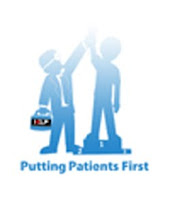Is this topic for you?
There are many types of arthritis (disease of the joints). This topic is about rheumatoid arthritis. If you are looking for information about how juvenile idiopathic (rheumatoid) arthritis affects young children, see the topic Juvenile Idiopathic Arthritis. If you are looking for information on the most common form of arthritis in older adults, see the topic Osteoarthritis.
What is rheumatoid arthritis?
Over time, this inflammation may destroy the joint tissues. This can limit your daily activities and make it hard for you to walk and use your hands.
Rheumatoid arthritis is more common in women than in men. It often begins between the ages of 40 and 60.
What causes rheumatoid arthritis?
The exact cause is not known. But rheumatoid arthritis is an autoimmune disease. This means that the body's natural defense system attacks the joints. The disease may run in some families.
What are the symptoms?
The main symptoms of rheumatoid arthritis are pain, stiffness, and swelling in the joints of the hands, wrists, elbows, feet, ankles, knees, or neck . The disease usually affects both sides of the body at the same time. In rare but severe cases, it may affect the eyes, lungs, heart, nerves, or blood vessels.
Sometimes the disease can cause bumps called nodules to form over the elbows, knuckles, spine, and lower leg bones.
How is rheumatoid arthritis diagnosed?
There is no single test for rheumatoid arthritis. Your doctor will do a physical exam and look at your joints for signs of swelling or tenderness. He or she will also ask about your symptoms and past health.
You may have blood tests, X-rays, and other tests to find out if another problem is causing your joint pain.
How is it treated?
Treatment for rheumatoid arthritis continues throughout your life. It includes medicine, exercise, and lifestyle changes. Getting treatment early may control the condition or keep it from getting worse.
Many of the medicines used to treat rheumatoid arthritis have side effects. So it is important to have regular checkups and talk with your doctor about any problems. This will help your doctor find a treatment that works for you.
At home, there are things you can do to relieve your symptoms.
- Rest when you are tired.
- Protect your joints from injury by using devices like special kitchen tools or doorknobs.
- Use splints, canes, or walkers to ease pain and take stress off your joints if your symptoms are severe.
- Eat a balanced diet.
- Exercise regularly.
- Stay at a healthy weight.
If you try medicine, exercise, and lifestyle changes for at least a few years but pain and disability get much worse, surgery may be an option. Total joint replacement of the hip and knee are the most successful.
It can be hard to live with a long-term illness that can limit your ability to do things. It is common for people with rheumatoid arthritis to feel depressed. Your mood can affect how you feel and how well you cope with pain. Be sure to seek the help and support you need from friends and family members. Professional counseling can also help.




No comments:
Post a Comment